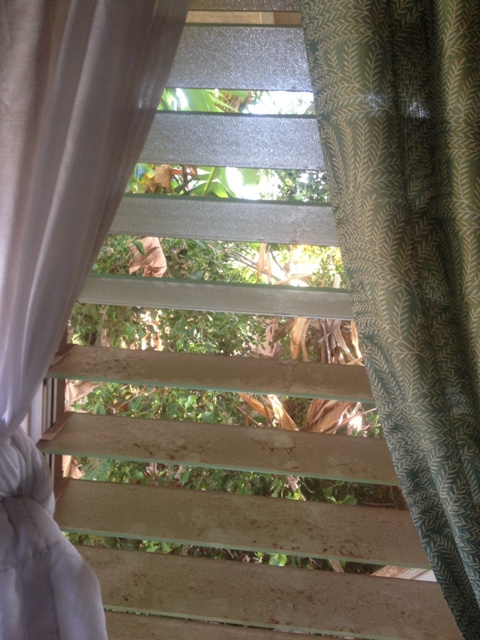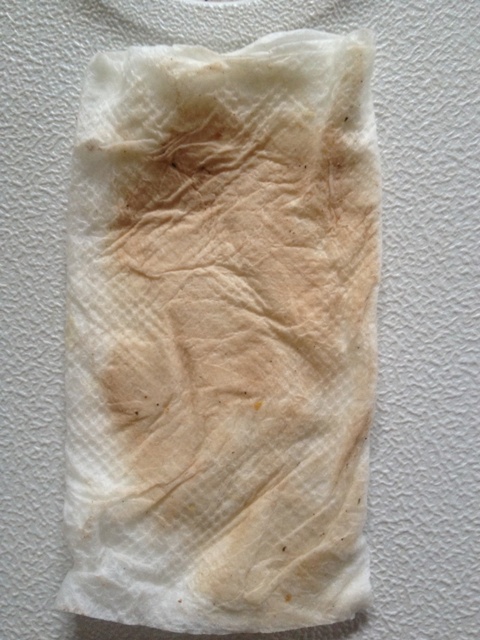
GMO & Pesticide Experiments in Hawaii: Part 2, Kauai's Right to Know
Green Newsletter
On July 31, 2013, there will be a public hearing on the island of Kauai that has no precedent. This hearing comes a month after the first reading of Draft Bill 2491 on June 26th of this year. Since the introduction of this pesticide safety bill, the Garden Island of Kauai has found itself in the spotlight, bringing the issue of "the right to know" and chemical trespass to worldwide attention.
Background on this environmental and social justice issue can be found in my earlier article, Pesticide & GMO Experiments in Hawaii: The Poisoning of Paradise
In recent weeks, campaigns by both sides of this issue have intensified. The local grassroots movement on Kauai, working towards full disclosure and regulation of clandestine pesticide use, is effectively using social media to share information and ideas. Since I returned home from Kauai a little over a month ago, it has been inspiring to see how this platform is being used to collaborate on how to best support the community of Waimea, Kauai and the GMO field workers who are exposed to a multitude of powerful, restricted use pesticides every day.
It has been interesting to witness the GMO industry in Hawaii embark on a marketing campaign. Not soon after I left Kauai, a print ad campaign began by Syngenta, one of the GMO companies that routinely conducts open air field tests of experimental pesticides and GMOs. Full-page color ads in the Garden Island newspaper touted the wonders of their pesticide Atrazine, which has been found in the water at Waimea Canyon Middle School.
I couldn't help but notice this one bit of hypocrisy in their mom-and-pop ad. This statement below comes from a chemical company that applies a significant percentage (but they won't tell how much) of the 18 tons of restricted use pesticides every year, on the Island of Kauai alone. If they cared so deeply about the community and environment... why not disclose what pesticides are being applied?
"At Syngenta, we care deeply about our communities and our environment. We are very careful with the agricultural products we use. We live, work and send our kids to school on Kaua'i. And we want these islands to remain safe and healthy for them and future generations. " ~-- Syngenta print ad in the Garden Island Newspaper.
This pesticide has been banned by the European Union because of groundwater contamination and has been documented by Dr. Tyrone Hayes to chemically castrate male frogs. Atrazine is undergoing its 3rd U.S. Environmental Protection Agency (EPA) review within 10 years and a bill was reintroduced this year to ban Atrazine from the US market.
Kauai Ordinance #2491 is about Public Safety, the Environment and the Right to Know
Draft Bill #2491 was introduced by Kauai County Councilmembers Gary Hooser and Tim Bynum last month. This proposed ordinance makes public health and impacts on the environment the top priority with respect to pesticide usage by the biotech industry. If passed, this ordinance would require that the GMO companies on the Island of Kauai be legally required to fully disclose to the public what pesticides are being sprayed as part of their research activities. It mandates pesticide buffer zones around schools, hospitals and other public areas. This bill also requires that an environmental impact statement (EIS) be completed before any further expansion of the GMO industry on Kauai. An excellent overview of this bill is outlined here by co-sponsor Gary Hooser.
Not surprisingly, the GMO industry is fighting back on any regulations, restraint or public disclosure of what pesticides are being sprayed daily as part of open air field trials and research.
Misinformation and distortion of what this bill represents has spread across Kauai, and rumors are that many of the fieldworkers, hardworking, good people trying to support their families, are fearful for their jobs. This is tragic. The proposed ordinance is not about putting people that work in the fields, often as "Human Scarecrows" out of work and eliminating their jobs. However, I can understand their fears, especially if that message has been conveyed to them by the management of the GMO companies they work for. People I have met on Kauai, that are in support of passing this bill, are deeply concerned about the health and safety of the communities surrounding these GMO farms, and the field workers employed by them. Pesticide poisoning of farm workers is a very real and serious issue, but because it primarily impacts immigrants and other low skilled workers that spend their days in agricultural fields, picking the fruit and vegetables we eat, it doesn't get much attention in the media.
For the public hearing scheduled on July 31 of this year, there are confirmed rumors of the GMO companies telling field workers that if they wear their company t-shirts and show up for the hearing, they will get wages for the day, and lunch will be purchased for them.
The Westside Community of Waimea
As mentioned in my first article, residents of the community of Waimea have filed a lawsuit against Pioneer, a subsidiary of Dupont. Located on the west side of Kauai, Waimea is a small, working class community that is directly across the Waimea River. On the other side of the river are approximately 1000 acres of research test fields operated by Pioneer. Since my first blog post on this issue appeared, I have been moved by the stories of the residents of this rural community. I have been touched by people who have reached out to thank me for telling their story. I can't imagine living every day with fugitive pesticide drift and dust, and waking up in the middle of the night to the sounds of tractors and the smells of mysterious chemicals being applied.
I listened to the words of one father (that did not want to be identified) concerned about the impact to his son, who has been exposed to an undetermined amount of pesticides on a daily basis for the majority of his life. He worries about the pesticide-laden dust that has been invading his home daily since the year 2000. He told me the dust is everywhere; it even gets into the toaster. The simple act of making a piece of toast could be exposing his family to dangerous, restricted use pesticides, many of which have been banned in Europe.
This father shared with me these photos showing how the pesticide-laden dust has invaded his home. The jalousie window shows dust from the nearby fields accumulated on the glass. The second photo shows a paper towel he used to wipe down his glass-top stove. He told me this was about 12 hours of dust accumulation.


http://www.huffingtonpost.com/maggie-sergio/gmo-pesticide-experiments_1_b_3649358.html
